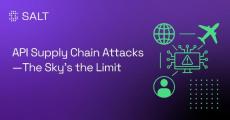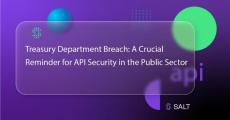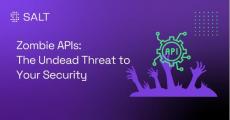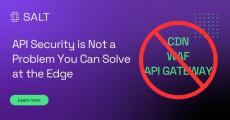- January 2025 (9)
- December 2024 (3)
- November 2024 (4)
- October 2024 (13)
- September 2024 (3)
- August 2024 (10)
- July 2024 (9)
- June 2024 (4)
- May 2024 (2)
- April 2024 (3)
- March 2024 (3)
- February 2024 (1)
- January 2024 (3)
- November 2023 (1)
- October 2023 (3)
- September 2023 (2)
- August 2023 (3)
- July 2023 (7)
- June 2023 (7)
- May 2023 (6)
- April 2023 (9)
- March 2023 (14)
- February 2023 (6)
- January 2023 (6)
- November 2022 (1)
- June 2022 (1)
- May 2022 (1)
- April 2022 (1)
The leading API security company, providing the context needed to discover APIs, stop attacks, and remediate vulnerabilities to accelerate business innovation.
By correlating activities across millions of APIs and users over time, Salt delivers deep context with real-time analysis and continuous insights for API discovery, attack prevention, and shift-left practices. Deployed quickly and seamlessly integrated within existing systems, the Salt Security platform gives customers immediate value and protection, so they can innovate with confidence and accelerate their digital transformation initiatives.
Complete API security for complete protection:
- Discover all your APIs: Continuously inventory all your APIs, including shadow and zombie APIs.
- Prevent sensitive data exposure: Identify the APIs that are exposing PII or other sensitive data.
- Stop API attacks: Correlate activity to block attackers during reconnaissance.
- Prevent ATO, Data Exfiltration: Thwart credential stuffing, account takeover, and data theft attacks.
- “Shift left” with proactive API security Test APIs in pre-production to identify and eliminate vulnerabilities.
- Accelerate incident response: Reduce the time needed to understand and resolve incidents.
- Provide remediation insights: Share learnings from runtime analysis with dev teams to harden APIs.
- Simplify compliance: Tie your API and sensitive data discovery and vulnerability remediation into GRC workflows.
The rich API context you need for robust discovery, attack prevention, and shift left.



























